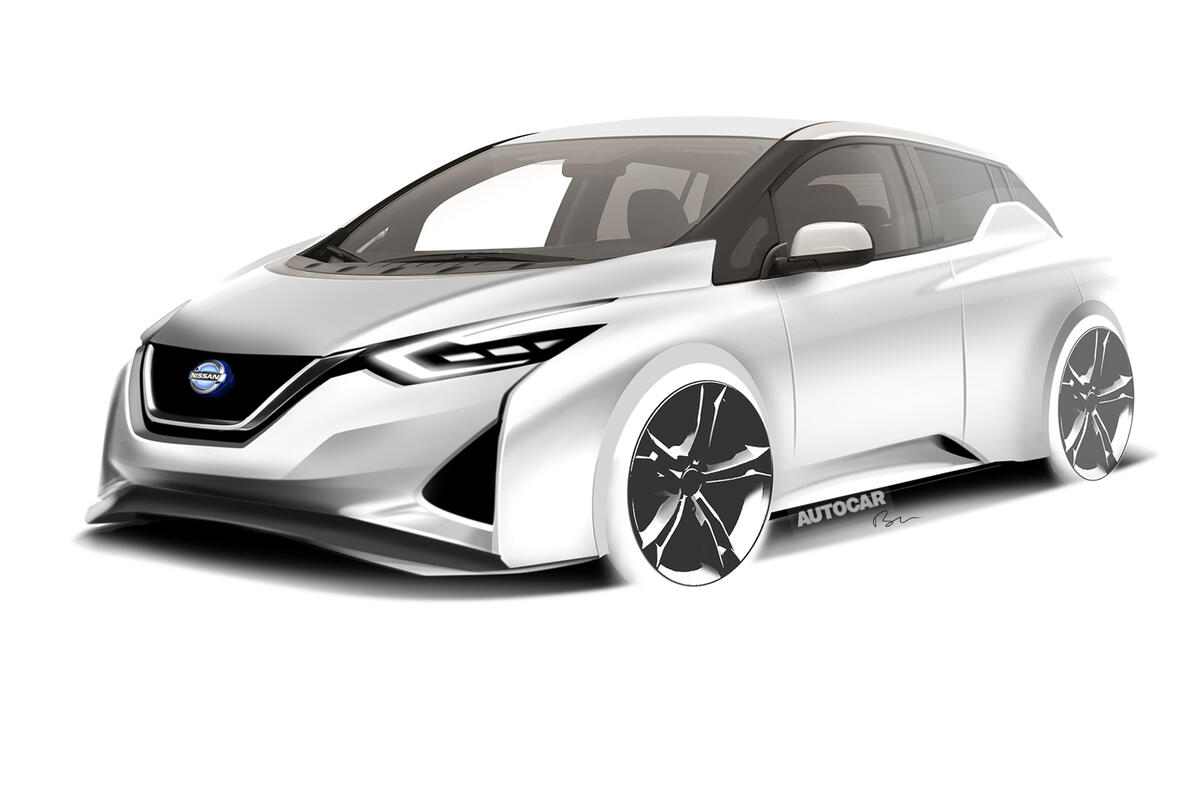Nissan’s next-generation Nissan Leaf electric hatchback, due in 2018, will be offered with a series of different battery pack options, one of which could provide a range of up to 340 miles.
Such a range figure would make the Leaf a much more mainstream option and reduce, if not eradicate, range anxiety for those who have so far been put off by the limited range of electric cars.
The next Leaf has been confirmed with autonomous tech - read more here
Nissan heavily previewed the next Leaf with the IDS concept at the Tokyo motor show last November. That concept car featured a 60kWh battery pack, which was said to offer a range of between 310 and 340 miles.
Nissan’s Gareth Dunsmore, director of the company’s zero-emission business unit, revealed that such a range should be viable for production in 2018, provided the larger battery meets Nissan’s price and durability targets.
He didn’t refer directly to the Leaf, but with the replacement due in 2018, it seems likely that 340 miles could be the headline figure for the range-topping model in the next-generation Leaf line-up.
The recently revised current Leaf is now offered with a larger, 30kWh lithium ion battery pack, which is good for a claimed 155-mile range, up from the 124 miles of the standard 24kWh battery.
This strategy is set to continue with the next-gen Leaf, with Nissan set to offer several different batteries to give buyers the option of different ranges — and with an increased price to match.
It’s a strategy similar to that of Tesla. Offering larger battery packs allows Nissan to give the Leaf a longer range even though there hasn’t been a significant chemical or technological breakthrough in battery technology, which is understood to still be a decade or so away.
While the Leaf has a higher list price versus its more conventional rivals, the majority of models are bought on three-year lease deals. This is where Nissan is able to compete with petrol and diesel models, with the Leaf costing around £200-£250 per month at present. Each higher-capacity battery pack would attract a premium on the lease price.
“We have two battery options now, and will grow options, making it more accessible with a longer range and a price to match,” said Dunsmore.
Nissan is seeing interest in the current Leaf increase all the time, and in March this year 6% of its total European sales were EVs. Dunsmore hopes that figure will rise to 20% by 2020, something the 2018 Leaf, with its greater range, should help to achieve.
Nissan does not yet have a plug-in hybrid model in its range, despite it being a technology many other manufacturers are adopting in order to reduce their fleet CO2 emissions. Dunsmore believes plug-ins to be a compromise.










Join the debate
Add your comment
Decent looking too
Thinking future
Post March